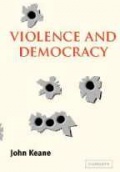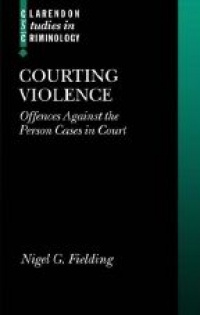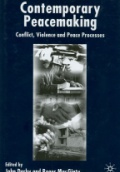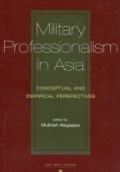
Courting Violence
ISBN: 0199279357
Vydavatelství: Oxford UP
Rok vydání: 2006
Nárok na dopravu zdarma
Courting violence analyses how the courts handle cases of physical violence. It examines how lawyers and judges go about questioning defendants, witnesses and victims, how testimony and physical evidence is used, what victims, witnesses and defendants think of the trial process, and the views of lay and professional participants about violent offences. The book is based on original fieldwork at criminal trials and interviews with those involved.
It is known that courtroom language, and the handling of evidence, influences the outcome of cases, and that those unfamiliar with the courts may feel bewildered and intimidated by courtroom language and procedures. The book examines the workings of such processes in cases of physical violence, with careful attention to assumptions made by lawyers, judges and others as they relate to gender, social class, ethnicity, and people exhibiting patterns of behaviour, such as young men who drink
heavily in groups.
Key findings examine lay participants' understanding of courtroom procedure and language, satisfaction with their ability to participate competently, and willingness to assist the courts again. The book profiles the frustrations caused by the restricted role granted lay participants in trials, and reports problems concerning the experience of minority ethnic groups. Other themes include resource problems; the potential to improve proceedings by technological means; the role of the police,
expert witnesses and interpreters; and variations in approaches to the judicial role. Understandings of violence are treated as contingent and legally-reified, and victimisation as a negotiated process.
Using accessible and engaging data the book shows readers the contemporary practice of criminal trials in the crown courts, highlights some of the most contentious and sensitive problems in criminal justice, and suggests improvements. It functions both as an accessible overview of the work of the courts and an insight into how society deals with serious crime.












